Kitten Care Tips for New Parents

Welcoming a kitten into your home is a moment of pure joy, but along with the excitement comes responsibility. Raising a kitten to become a healthy, happy cat requires thoughtful care, attention to detail, and understanding their specific needs. From ensuring they are properly fed to creating a safe environment where they can thrive, every step you take from the very first day will shape the rest of your life.
- Many people underestimate how different kitten care is compared to taking care of adult cats. Kittens have different nutritional needs, require more attention, and need a supportive environment as they learn and grow. Whether you are a first-time pet parent or simply seeking to refresh your knowledge, this comprehensive guide will walk you through the essential aspects of kitten care, helping you provide the best life possible for your furry new friend.
Preparing Your Home for a Kitten

Before your kitten arrives, the first task is to kitten-proof your home. Kittens are curious creatures with endless energy and an insatiable desire to explore. They’ll squeeze into tight spaces, jump onto high surfaces, and nibble on just about anything that catches their eye. With this in mind, your home needs to be a safe and secure place for them.
Essential Supplies

Before your kitten arrives, stock up on supplies that will make the transition easier for both of you. Here are some of the essentials:
- Kitten Bed: Choose a soft, cozy bed where your kitten can curl up and sleep. The bed should be placed in a quiet area where they won’t be disturbed.
- Litter Box: Opt for a litter box that’s easy for a kitten to climb in and out of. Consider using a low-sided box to start with and gradually transition to a larger one as they grow.
- Scratching Post: Scratching is a natural behavior for kittens, so providing a designated scratching post can help prevent them from damaging furniture.
- Toys: Kittens need stimulation and playtime to help them develop both physically and mentally. Stock up on a variety of toys like balls, feathers on strings, and interactive puzzle toys.
- Food and Water Bowls: Choose shallow bowls that are easy for your kitten to use. Stainless steel or ceramic bowls are best, as they are easier to clean and less likely to harbor bacteria compared to plastic.
Bringing Your Kitten Home

When the big day arrives, bringing your kitten home for the first time can be an overwhelming experience—for both you and the kitten. The key is to make the transition as smooth as possible by creating a calm, welcoming environment.
- First Day Tips: When you bring your kitten home, introduce them to their new surroundings gradually. Start by confining them to a single room or a small area of your home where they can become familiar with the space. Too much freedom too soon can be overwhelming for a kitten, so give them time to explore one room at a time before gradually opening up the rest of the house.
- Safe Space: Having a designated safe space will help your kitten feel secure in their new environment. Make sure this area includes their bed, litter box, and food and water bowls, and avoid introducing them to other pets or family members right away. Let your kitten approach new experiences on their own terms.
- First Few Days: During the first few days, focus on building trust. Your kitten may be shy or scared, but with patience, they will start to come out of their shell. Allow them to come to you rather than forcing interaction. Speak softly and move slowly to avoid startling them.
Feeding Your Kitten
One of the most critical aspects of kitten care is ensuring they receive proper nutrition. Kittens grow rapidly during their first few months, so it’s essential to provide a diet that supports their development.
Understanding Nutritional Needs: Kittens need a diet that is rich in proteins, fats, vitamins, and minerals to support their growing bodies. Look for specially formulated kitten food, which contains higher levels of these essential nutrients compared to adult cat food. Kitten food is available in both wet and dry varieties, and providing a combination of both can offer the benefits of hydration and dental health.
- Wet Food vs. Dry Food: Wet food helps keep your kitten hydrated, which is important since cats often don’t drink enough water on their own. Dry food, on the other hand, promotes healthy teeth and gums. Offering both gives your kitten the advantages of hydration from the wet food and the dental benefits from the dry food.
- How Often to Feed a Kitten: Unlike adult cats, who typically eat two meals a day, kittens need to be fed more frequently. Generally, kittens between 8 and 12 weeks of age should be fed four times a day. As they grow older, you can gradually reduce the frequency of meals to three times a day until they reach adulthood.
Portion Sizes: Overfeeding can lead to weight issues, while underfeeding can stunt growth. Follow the feeding guidelines on your kitten’s food packaging, adjusting portion sizes based on your kitten’s age and activity level. If you’re unsure, consult your vet to ensure your kitten is receiving the right amount of food.
Litter Training Your Kitten
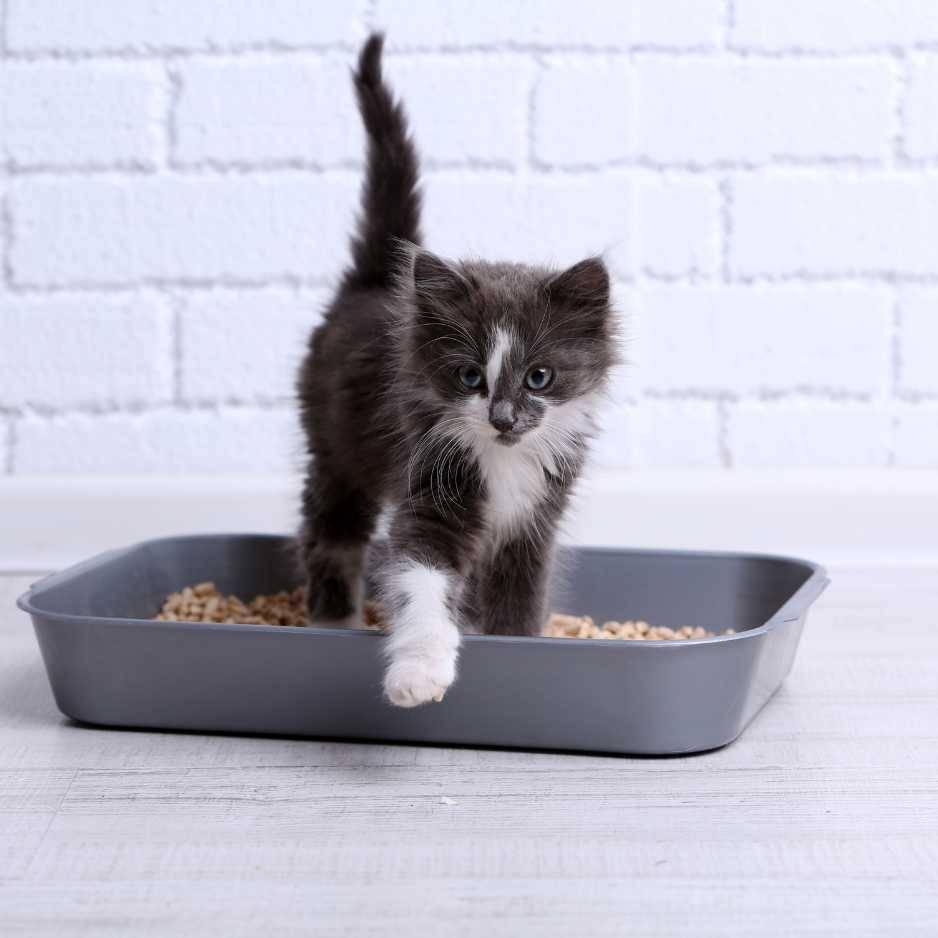
Litter training is usually a straightforward process, as kittens naturally want to bury their waste. However, some kittens may need a little guidance to get started.
Step-by-Step Guide:
- Start with the Right Litter Box: Choose a small, shallow litter box that’s easy for your kitten to access. You may need to experiment with different types of litter to find one that your kitten likes.
- Introduce the Litter Box Early: Place your kitten in the litter box after meals and naps to help them make the connection between the box and their bathroom needs. Praise them when they use it successfully.
- Location Matters: Place the litter box in a quiet, accessible area of your home. Avoid putting it in high-traffic areas or next to noisy appliances like washing machines, which could scare your kitten away.
- Keep it Clean: Kittens are clean animals, and if the litter box becomes too dirty, they may look for alternative places to go. Scoop the box at least once a day and change the litter regularly.
Troubleshooting: If your kitten has accidents outside the litter box, it could be due to stress, illness, or an aversion to the type of litter you’re using. Make sure their litter box is always clean and accessible, and consult your vet if the problem persists.
Health and Veterinary Care
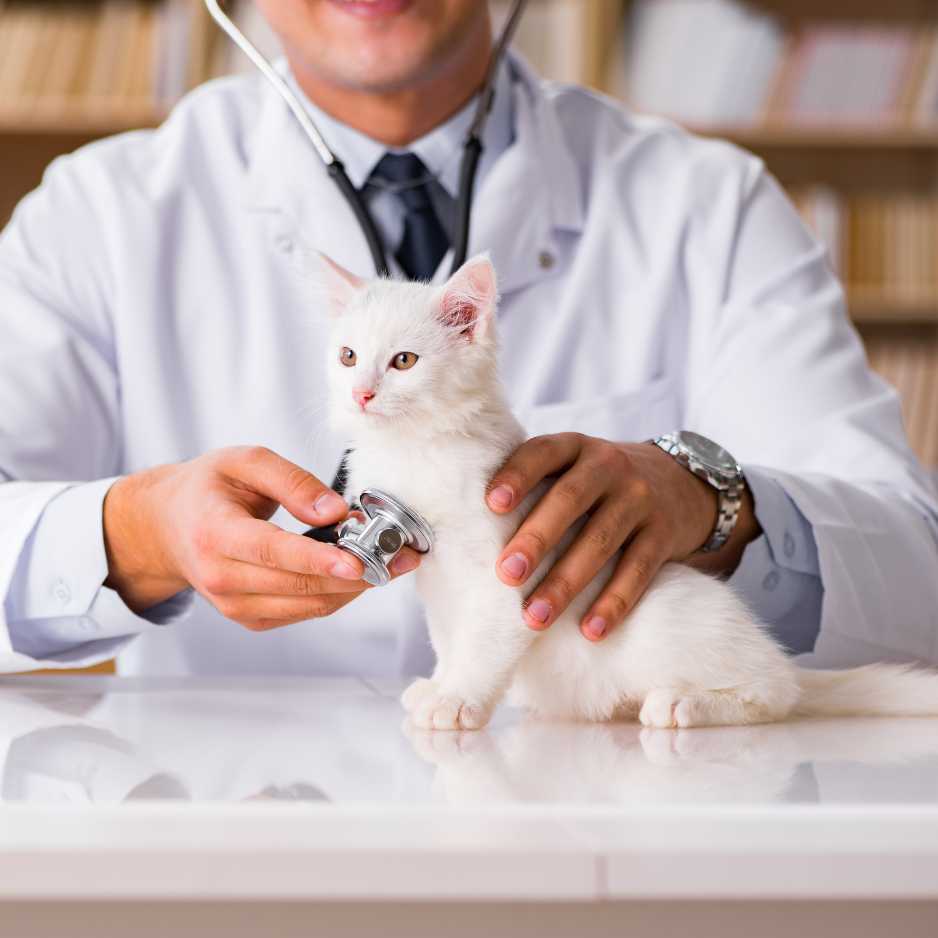
Regular veterinary care is a crucial part of raising a healthy kitten. During the first few months of life, kittens need vaccinations, deworming treatments, and flea prevention to protect them from common health problems.
- Vaccinations: Kittens require a series of vaccinations to protect them against diseases such as feline distemper, feline leukemia, and rabies. These vaccinations typically start when the kitten is around 6-8 weeks old and continue every 3-4 weeks until they are about 16 weeks old.
- Parasite Prevention: Parasites like fleas, ticks, and worms are common in kittens, especially those who have been born outdoors or in unsanitary conditions. Your vet will likely recommend regular deworming treatments and flea preventatives to keep your kitten parasite-free.
- Spaying and Neutering: Spaying or neutering your kitten is important for preventing unwanted litters and can also reduce the risk of certain health problems, such as cancers of the reproductive organs. Most vets recommend performing the surgery when the kitten is between 4 and 6 months old, but this can vary depending on the individual kitten’s health and breed.
- Common Health Issues: Be on the lookout for symptoms of common kitten illnesses, such as upper respiratory infections, diarrhea, and parasites. Early detection and treatment are key to ensuring that your kitten remains healthy.
Grooming Your Kitten
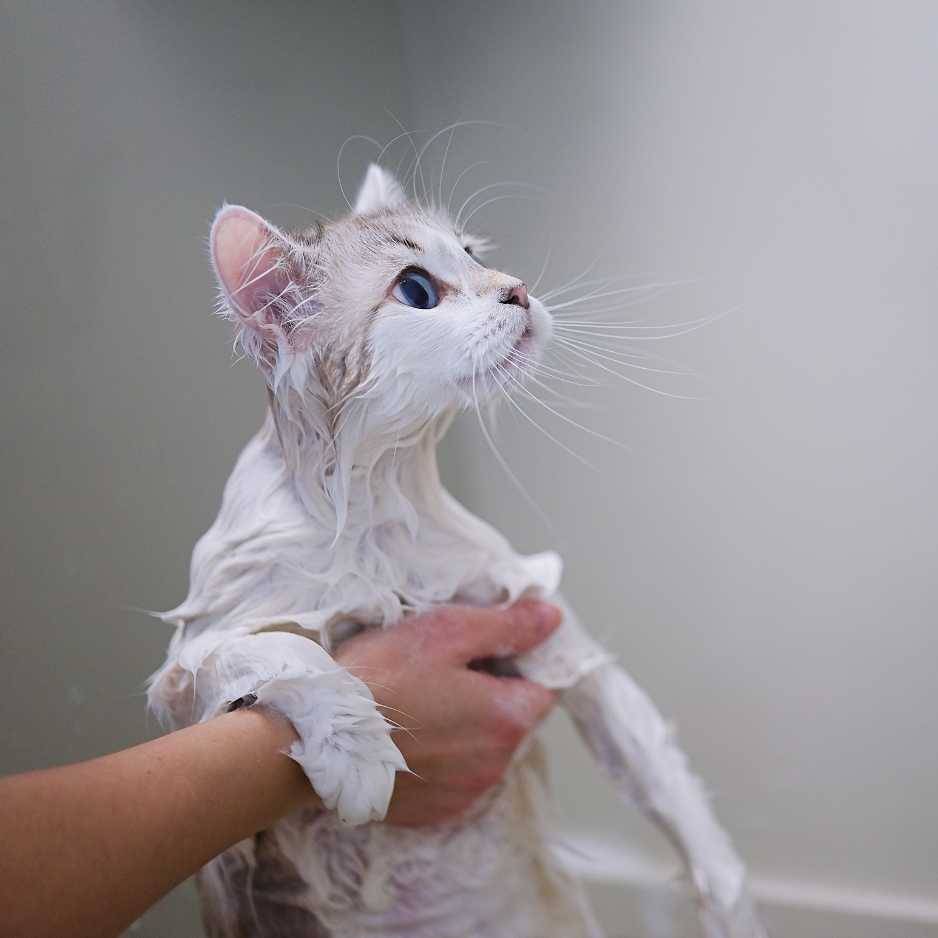
Introducing grooming early in your kitten’s life will help them become accustomed to being handled and make it easier to maintain their hygiene as they grow.
- Brushing: Even short-haired kittens benefit from regular brushing, as it helps remove loose fur and reduces the risk of hairballs. For long-haired kittens, like Maine Coons or Persians, brushing is even more critical to prevent matting and tangling.
- Bathing: Most kittens won’t need regular baths, as they are excellent self-groomers. However, there may be times when a bath is necessary, such as if your kitten gets into something sticky or dirty. Use a kitten-specific shampoo and lukewarm water, and make sure the experience is as calm and stress-free as possible.
- Nail Trimming: Kittens’ nails grow quickly and can become sharp, which can lead to accidental scratches. Introduce nail trimming early, using a pet-specific nail trimmer and plenty of positive reinforcement. Trim only the tip of the nail, avoiding the quick, which is the pink part of the nail that contains blood vessels.
Socializing Your Kitten

Socialization is one of the most important aspects of kitten care, as it helps your kitten grow into a well-adjusted, confident adult cat. The best time for socialization is between 2 and 7 weeks of age, but even after this window, you can still help your kitten become comfortable around people and other animals.
- Introduce New Experiences Gradually: Whether it’s meeting new people or encountering other pets, it’s important to introduce new experiences slowly and positively. Allow your kitten to explore at their own pace and always provide a safe space where they can retreat if they feel overwhelmed.
- Playtime: Play is essential for your kitten’s development. It helps them practice their natural hunting instincts, learn coordination, and bond with you. Interactive toys, like feather wands or laser pointers, can be great for engaging your kitten and helping them burn off some of that kitten energy.
- Handling: Regularly handling your kitten will help them become comfortable with being touched. Gently touch their paws, ears, and mouth so that they become accustomed to being examined by you and, later, by the vet.
Behavioral Training

Kittens are quick learners, and with a little patience, you can teach them positive behaviors that will last a lifetime.
- Positive Reinforcement: When your kitten displays a behavior you want to encourage, such as using the litter box or scratching the scratching post instead of the furniture, reward them with treats, praise, or petting. Positive reinforcement helps your kitten make the connection between good behavior and rewards.
- Discouraging Bad Behavior: Kittens are playful, but sometimes their play can be too rough. If your kitten bites or scratches during play, stop playing immediately and ignore them for a few minutes. This will help teach them that rough play results in the end of fun.
- Avoid Punishment: Yelling at or punishing your kitten for bad behavior can make them fearful and anxious. Instead, focus on redirecting bad behavior towards more appropriate outlets.
Building a Bond with Your Kitten
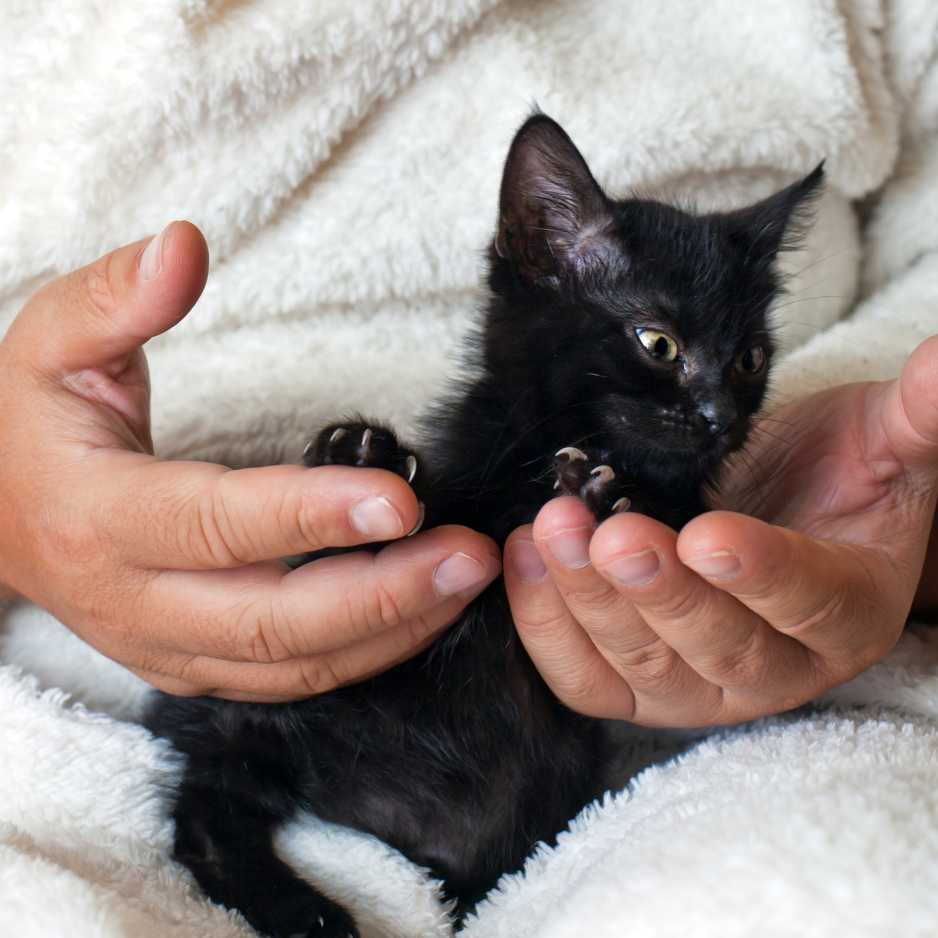
Finally, one of the most important aspects of raising a healthy kitten is building a strong bond. Spend time playing, cuddling, and simply being present with your kitten. Over time, this will create a deep connection that will last throughout their life.
- Quality Time: Kittens thrive on attention and affection. Make time each day for interactive play and snuggling to strengthen your bond. This also helps your kitten feel safe and secure in their new home.
- Patience: Every kitten has their own unique personality, and some may take longer to warm up to new experiences or people. Be patient and understanding as your kitten learns and grows, and they’ll repay you with a lifetime of love and companionship.
Conclusion

Raising a kitten can be one of the most rewarding experiences, but it comes with challenges and responsibilities. By providing proper nutrition, creating a safe environment, and offering love and attention, you’ll set your kitten up for a healthy, happy life. From their first curious steps to becoming a confident adult cat, your care and guidance will make all the difference in their journey.


